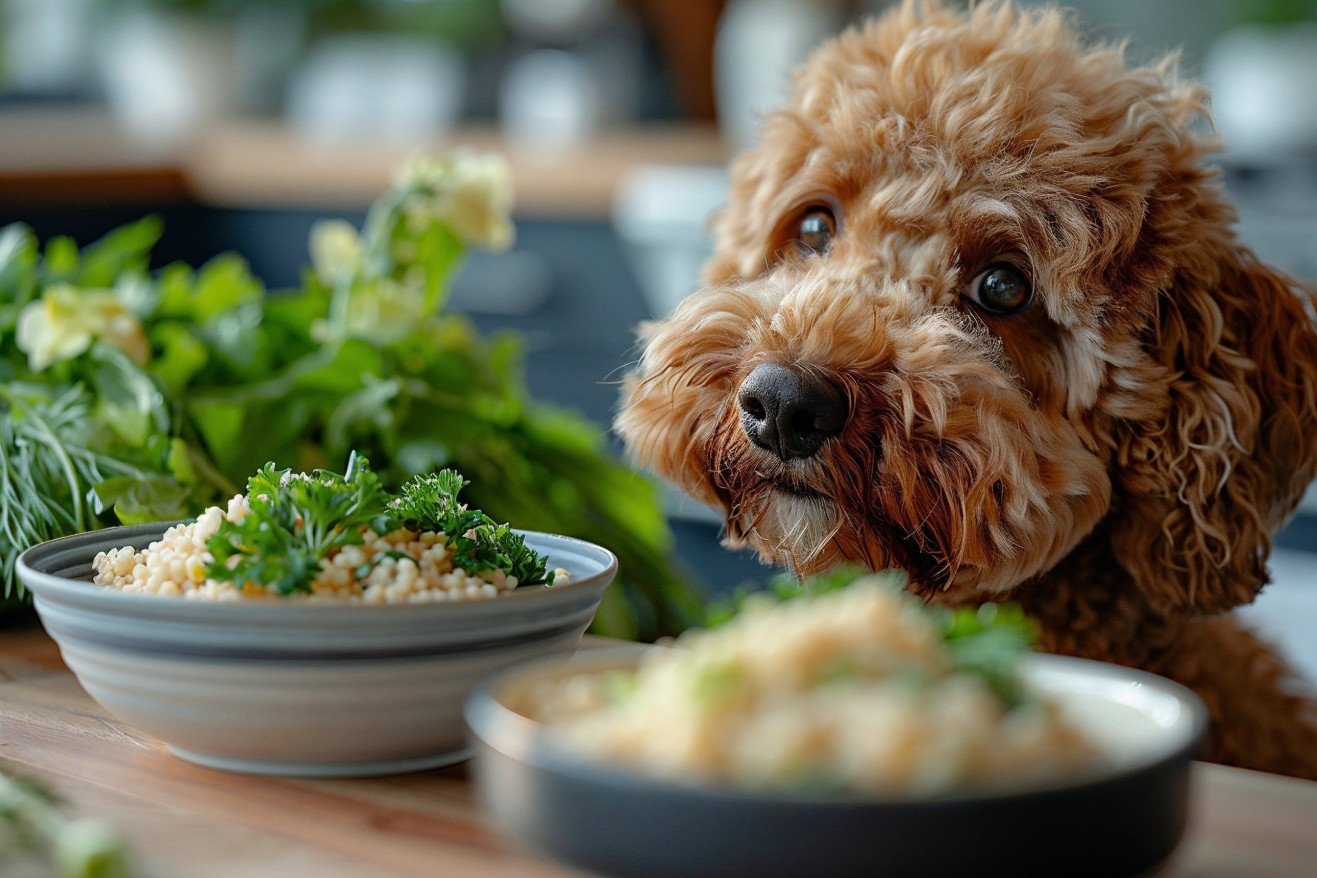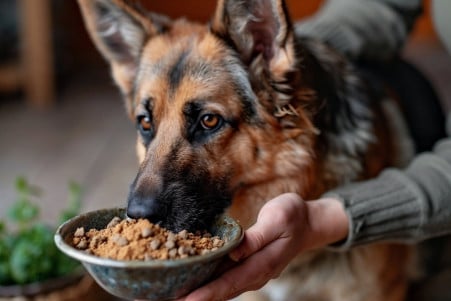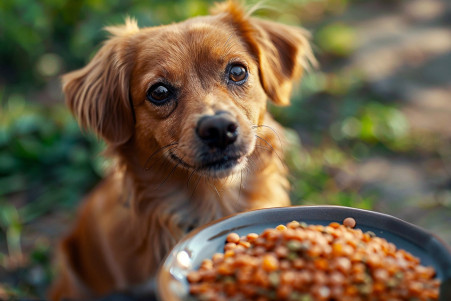Can Dogs Eat Couscous? Benefits and Risks Explored
22 April 2024 • Updated 22 April 2024

If you're thinking about giving your dog some of your couscous, there are a few things you should know about the potential benefits and risks of this type of grain for dogs. While couscous is safe for dogs to eat in small amounts as part of a balanced diet, it should be free of any seasonings or other ingredients that could be harmful. While couscous does offer carbohydrates and some plant-based protein, it lacks many of the essential nutrients dogs get from meat, vegetables, and commercial pet food.
In this evidence-based article, we'll discuss what veterinary science and other experts have to say about the nutritional value of couscous for dogs, how much you can give them, and the best way to prepare it. This way, you can make an educated decision about whether or not to let your dog eat couscous based on their specific dietary requirements.
Can dogs eat couscous?
Nutritional Content of Couscous for Dogs
If fed in moderation, couscous can be a healthy part of a dog's diet, providing them with carbohydrates, plant-based protein, and fiber. It also has some valuable nutrients like selenium, vitamin B6, and magnesium, and a few antioxidants. However, it doesn’t have the essential nutrients that dogs get from meat, vegetables, and commercial pet food.
Whole wheat couscous is a better choice than regular couscous, which is made from semolina flour. As dieticians explain, whole wheat couscous is less refined and has more fiber, vitamins, and minerals. The USDA shows that whole wheat couscous has more fiber, magnesium, and selenium than regular couscous.
Although couscous has some nutritional value, pet experts advise against making it a regular part of your dog's diet. This is because couscous doesn't have the complete and balanced nutrition that dogs need from their regular meals. It doesn't have the essential animal-based proteins, fats, and some vitamins and minerals that dogs need. Therefore, couscous should be given to dogs as an occasional treat at most, not as a substitute for their nutritionally complete regular dog food.
Portion Control and Health Concerns
The general rule of thumb for portion control is about 1 tablespoon of couscous for every 9 pounds of body weight, or as recommended by a veterinarian, says Pet Dog Planet. Overfeeding couscous to dogs can result in weight gain and other health problems due to its high carbohydrate and calorie content. Overconsumption of couscous can also lead to a decrease in the consumption of other important nutrients that dogs need from their regular diet.
Dogs with wheat or gluten allergies or sensitivities should not eat couscous since it is made from wheat and contains gluten, says DogTime. If eaten in large amounts or if a dog is not used to eating it, couscous can cause digestive problems, including bloating or gastrointestinal upset, according to the blog at Canvas Personalized.
How to Make Healthy Couscous Dog Food
If you're going to give your dog couscous, it should be plain and free of any seasonings, including garlic, onions, salt, or spices that can be toxic, says Spoiled Hounds. Couscous can be combined with dog-safe veggies, lean meats, and healthy oils to make a well-rounded meal. However, it's important to make sure that you're following recipes and instructions for homemade couscous dog food to make sure that you're getting the right nutrients and serving sizes, as shown by Azestfor.
Dogs that have allergies or sensitivities may do better with whole wheat or gluten-free couscous, says Vegan 4 Dogs. That said, it's important to introduce couscous to your dog's diet slowly and watch for any negative side effects, especially if your dog has allergies or sensitivities, according to The Wildest.
Healthy Herbs and Spices to Season Couscous for Dogs
While most herbs and spices should be avoided when seasoning couscous for dogs, some can be beneficial when used in small amounts. Just Raw Pet Food explains that herbs like basil, parsley, rosemary, and ginger can help with digestion, inflammation, and other health concerns in dogs. Meanwhile, cinnamon, coriander, and turmeric are examples of spices that may be safe for dogs in small doses, but you should always ask your vet before introducing them into your dog's diet, Preventive Vet warns.
On the other hand, garlic, onions, and too much salt are never safe to add to couscous or any other dog food, as they can be toxic and lead to serious health problems, Vetnoms says. In general, it's best to stick to plain, unseasoned couscous when feeding it to dogs to avoid any potential risks or negative side effects.
Conclusion: How to Integrate Couscous Into a Healthy Dog Diet
While couscous can be a nutritious addition to a dog's diet, it's important to feed it in moderation and as part of a balanced diet, not as a substitute for a dog's regular meals. As explained by The Dog People by Rover.com, couscous is a source of selenium, fiber, protein, magnesium, and vitamin B6, all of which can be good for dogs. However, dogs can't have too much selenium, so it's important to control the amount of couscous they eat.
Cooked, unseasoned couscous mixed with meat and vegetables can be a nutritious homemade meal for dogs, as pointed out by the author on Medium. However, it's important to avoid seasonings, spices, and other ingredients that can be toxic to dogs. Raw, unseasoned couscous can also be safe, but it's important to control the portion size because it can expand in a dog's stomach.
Rested Paws suggests that while dogs can eat couscous, it should not be used as a substitute for a balanced diet. Whole wheat couscous may be a healthier option, but it's best to consult a veterinarian before making any major changes to a dog's diet. The most important thing is to introduce couscous gradually, watch for any negative reactions, and control the portion size.
By understanding the potential benefits and drawbacks, as well as the best ways to prepare it, couscous can be an occasional treat or supplement to a healthy dog diet.


